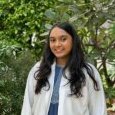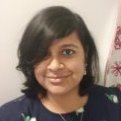“I find that we humans have a lot of strong biases that are passed on to us culturally, or are with us biologically, that we have to overcome.” This is a line that stuck with me from Erich D. Jarvis’s talk on July 17, 2024.
Erich D. Jarvis shares his experiences, the impact of cultural influences on scientific research, how ethnicity, culture, gender, and vocabulary influence the experiments scientists perform, and how people interpret findings differently based on their cultural background. He recounts his transition from being a dancer to a scientist and how his childhood experiences significantly shaped his early beliefs and scientific career. Jarvis's work focuses on vocal learning pathways, a trait found in only five groups of mammals and three groups of birds, including humans. He also highlights the challenges early scientists faced in finding vocabulary that is consistent across vertebrate brains due to similar learning pathways.
Historically, it was believed that brains evolved outward, with older structures at the bottom and newer ones at the top, leading to the terminology of paleocortex and neocortex. It was concluded that the neocortex was the largest in humans and responsible for complex cognitive behavior and racial differences in cortical sizes were falsely reported. Jarvis worked with the Avian Brain Nomenclature Consortium to correct these inaccuracies and introduce a modern view of neuroanatomy, unifying nomenclature and ensuring it matches biological reality. He discusses the significance of the field homology hypothesis in understanding neuroanatomy across vertebrate species and cautions against cultural influences that may skew scientific interpretation. Recent genetic analyses have identified specific brain areas involved in vocal learning, such as the HVC in songbirds and the LMC in humans, illustrating convergent evolution.
Jarvis advocates for the re-evaluation of certain terms, like mammillary bodies, which are inaccurately named, and the replacement of terms like "higher vertebrates" and "lower vertebrates," which imply a linear view of evolution. He provides examples of avian species like parrots, which have more advanced vocal learning circuits than chimpanzees, challenging these perspectives.
Reflecting on cultural biases, Jarvis said, “I find that we humans have a lot of strong biases that are passed on to us culturally, or are with us biologically, that we have to overcome. I think a lot more scientific investigation needs to be done on what’s causing humans to behave in such a way so we can actually then have policies that overcome our behaviors of tribalism, if labeled broadly.” He adds, “What is an acceptable term today may become an unacceptable term later on in your scientific writing. So we have to make sure our definitions are clear and write in a way that we don’t intend to be insulting. And so we have to be careful, but we have to be careful of being over-careful; otherwise, we’ll write in ways that are distracting and not clear.”
Jarvis advocates for increased diversity in scientific leadership. He recalls the early SfN meetings in the 1990s, where seeing a person of color like himself was rare, and how today, the diversity in such meetings is more representative of the human population.
Jarvis also talked about how studying songbirds can provide insights into human speech mechanisms, with the potential for discovering treatments for speech deficits influenced by genetic and familial factors. As a medical student, my belief in the importance of understanding evolution and its potential to solve existing problems has been reaffirmed.







